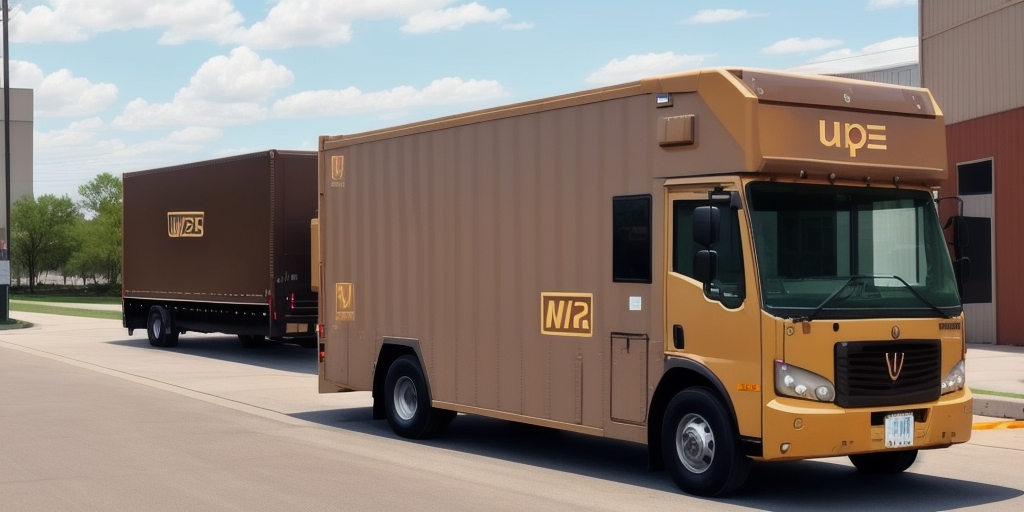Selecting the Right Shipping Service
The foundation of successful logistics lies in selecting the appropriate shipping service. The choice between air, sea, and ground transportation depends on various factors including the size, weight, destination, and budget of your shipment.
How to Choose the Best Shipping Service
When selecting a carrier, consider the following:
- Shipment Size and Weight: Larger and heavier shipments might be more cost-effective via sea freight, whereas smaller, urgent packages may be best suited for air transport.
- Destination: The accessibility of the destination can influence the choice of shipping method. Remote areas might have limited options.
- Budget: Assess your budget constraints and balance them with the speed and reliability of the service.
Research carriers by reading reviews and testimonials from past customers, and compare rates to ensure you choose the best option for your needs. According to the Freightos Freight Benchmark Report 2023, global freight rates have fluctuated significantly, making thorough research essential.
Tips for Negotiating Shipping Rates with Carriers
Negotiating favorable rates can lead to substantial savings:
- Market Research: Understand current market rates to negotiate from a position of knowledge.
- Volume Discounts: Commit to higher shipping volumes to leverage better rates.
- Long-Term Contracts: Establish long-term agreements to secure stable pricing.
Additionally, consider the level of service required. Specialized handling or expedited shipping may incur additional costs, but negotiating based on your specific needs can result in a more tailored and cost-effective solution.
Packaging and Handling Goods
Proper packaging is crucial not only for the safety of your goods but also for maintaining your brand’s reputation.
The Importance of Accurate Packaging
Using high-quality packaging materials and techniques ensures that your products reach their destination without damage. Protective measures such as bubble wrap, packing peanuts, or foam should be employed as necessary. Clear and prominent labeling with essential information further minimizes the risk of mishandling.
Beyond protecting goods, accurate packaging positively impacts brand image. Well-packaged products enhance customer satisfaction and reduce returns or complaints due to damage, ultimately benefiting your business.
Understanding and Navigating Customs and Trade Regulations
Compliance with customs and trade regulations is essential to prevent delays, fines, or seizures of shipments.
Understanding Customs Requirements for Import and Export
Customs regulations vary by country and are subject to change. Essential documentation typically includes invoices, packing lists, and bills of lading. Duties and taxes may apply based on the nature of the goods and the destination country.
Staying updated with the latest regulations is vital. Working with a customs broker or freight forwarder can streamline the process and ensure compliance. The U.S. Customs and Border Protection provides comprehensive guidelines for importers and exporters.
Navigating International Trade Laws and Regulations
International trade laws encompass a wide range of regulations, including trade agreements, restrictions, and tariffs. Being well-versed in these laws helps in making informed decisions and avoiding legal pitfalls.
Regularly consult official sources such as the World Trade Organization and attend industry conferences to stay informed about changes in trade policies and regulations.
Managing Logistics Operations
Efficient management of logistics operations is key to reducing costs and improving service delivery.
Strategies for Managing Inventory and Fulfillment Operations
Implementing a robust inventory management system is essential. Utilize software solutions like warehouse management systems (WMS) or transportation management systems (TMS) to track supply levels, order fulfillment, and delivery times. Accurate demand forecasting based on sales data and market trends helps in maintaining optimal inventory levels, preventing both stockouts and overstocking.
For more information on effective inventory management, refer to the Investopedia guide on Inventory Management.
Maximizing Efficiency in Warehouse Management and Distribution
Adopting advanced logistics technologies such as barcoding, RFID, and automated storage systems can significantly enhance warehouse efficiency and accuracy. Implementing Lean or Six Sigma principles helps in streamlining operations, minimizing waste, and reducing costs.
Optimized inventory management involves regular reviews of inventory levels, identifying slow-moving items, and implementing effective replenishment systems. Prioritizing safety through employee training and proper equipment maintenance also contributes to overall operational efficiency.
Communication and Partnerships
Establishing strong communication channels and partnerships is fundamental to successful logistics operations.
Effective Communication with Freight Forwarders and Customs Brokers
Clear and consistent communication with freight forwarders and customs brokers ensures that shipments are handled smoothly. Provide complete and accurate information about your shipment, including dimensions, weight, and any special handling requirements. Regular updates can help identify and address potential issues promptly.
Setting clear expectations regarding delivery dates, transit times, and other critical details helps in avoiding misunderstandings and ensures that all parties are aligned.
Customer Satisfaction and Support
Delivering exceptional customer service is pivotal in building long-term relationships and maintaining a strong reputation.
Ensuring Customer Satisfaction with Timely Deliveries and Tracking Updates
Providing accurate tracking information allows customers to monitor their shipments in real-time, enhancing transparency and trust. Offering flexible delivery options, such as express or same-day delivery, caters to varying customer needs and preferences.
According to a Invespcro report, 86% of buyers are willing to pay more for a better customer experience, highlighting the importance of reliable delivery services.
Managing Returns and Handling Disputes with Customers and Suppliers
Developing a clear returns policy and effective dispute resolution mechanisms is essential for maintaining customer trust and minimizing revenue loss. Establish guidelines for returns and refunds, and train your team in negotiation skills to handle disputes professionally.
Efficiently managing returns not only improves customer satisfaction but also provides valuable insights into product quality and service effectiveness.
Staying Informed and Innovative
The logistics industry is dynamic, with continuous advancements in technology and evolving market trends.
Staying Up-to-Date on Industry Trends and Innovations in Logistics
Keeping abreast of the latest developments helps in maintaining a competitive edge. Attend logistics conferences, subscribe to industry publications, and participate in professional organizations to stay informed about new technologies and best practices.
Embracing innovations such as artificial intelligence, automation, and advanced analytics can enhance operational efficiency and provide deeper insights into supply chain dynamics.
By implementing these strategies, you can ensure the successful landing of your goods in the market. Stay informed, communicate effectively, and leverage the right technologies and partnerships to streamline your logistics operations. With meticulous planning and execution, you can achieve a competitive advantage and meet your customers' needs efficiently.








